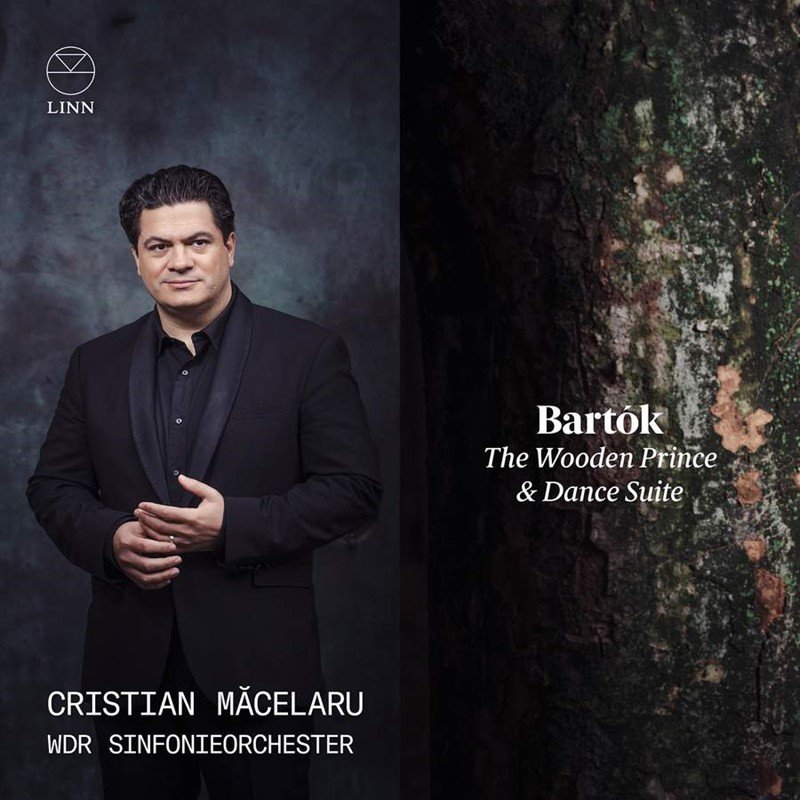Cristian Măcelaru’s new album featured in Gramophone Magazine’s “Editor’s Choice”
WDR Sinfonieorchester / Cristian Măcelaru - Bartók: The Wooden Prince & Dance Suite (Linn Records)
Editor’s Choice: March 2023 | The best new classical recordings
By Martin Cullingford
Gramophone
February 20, 2023
Cristian Măcelaru and his WDR Sinfonieorchester players capture Bartók’s sound world and the narrative’s journey splendidly: a terrific album indeed.
Read the full article, click here.
Bartók: The Wooden Prince & Dance Suite
By Edward Seckerson
Gramophone
February 20, 2023
I’ve yet to see a staged double-bill of Bartók’s symbolist ballet The Wooden Prince and his allegorical operatic masterpiece Duke Bluebeard’s Castle. A tall and very expensive order however one might approach the challenge. But that, it seems, was Bartók’s wish, partly it has to be said in an attempt to gain greater currency for the latter. Both are extraordinary essays in orchestral black magic with a palette of colours which only the likes of a Berlioz or a Ravel might conjure. Bartók was a past master of the folksy made fantastical while never losing touch with an underpinning humanity – and it’s that quality which draws the listener in. It’s one thing to be seduced by the aural spectacle and quite another to be moved by the emotional subtext.
So it is the humanity of The Wooden Prince which raises it above the realms of fanciful fairy tale and fuels the deeper drama. And in that regard, great credit must go to the Romanian conductor Cristian Măcelaru, who displays real kinship here with the melodic colour and cast of the music – not least Bartók’s curvaceous lyricism – and marries it so compellingly to the textural elements. It sounds gorgeous, spacious and luxuriant – all credit to the Linn engineers – and the character, soloistically and collectively, of the WDR Sinfonieorchester leaves little to be desired. A sequence like ‘The Dance of the Waves’ (initially so redolent with its rippling celesta and woodwinds of ‘the lake of tears’ in Bluebeard) is lush – there is no other word. But there is swagger, too, in the Prince’s transformation from man to puppet and eerie parallels with a certain Miraculous Mandarin.
Then again, none of this would mean very much beyond the cosmetic if Măcelaru weren’t so in tune with the deep and abiding ache in Bartók’s music. The sequence chronicling the Prince’s despair – the realisation that the princess of his heart’s desire has been captivated by merely a graven image of his real self – has real emotional clout. Unlike Bluebeard, though, the Prince does get his happy ending.
Also full of character – and much fancy footwork from Măcelaru’s orchestra – is Bartók’s Dance Suite. I guess the connecting tissue between the folk dances of Hungary and Romania is something Măcelaru taps into but the real wonder of this piece is the way the earthiness morphs into the exotic and mystical – like the central molto tranquillo section. A terrific album.
Read the full review, click here.

